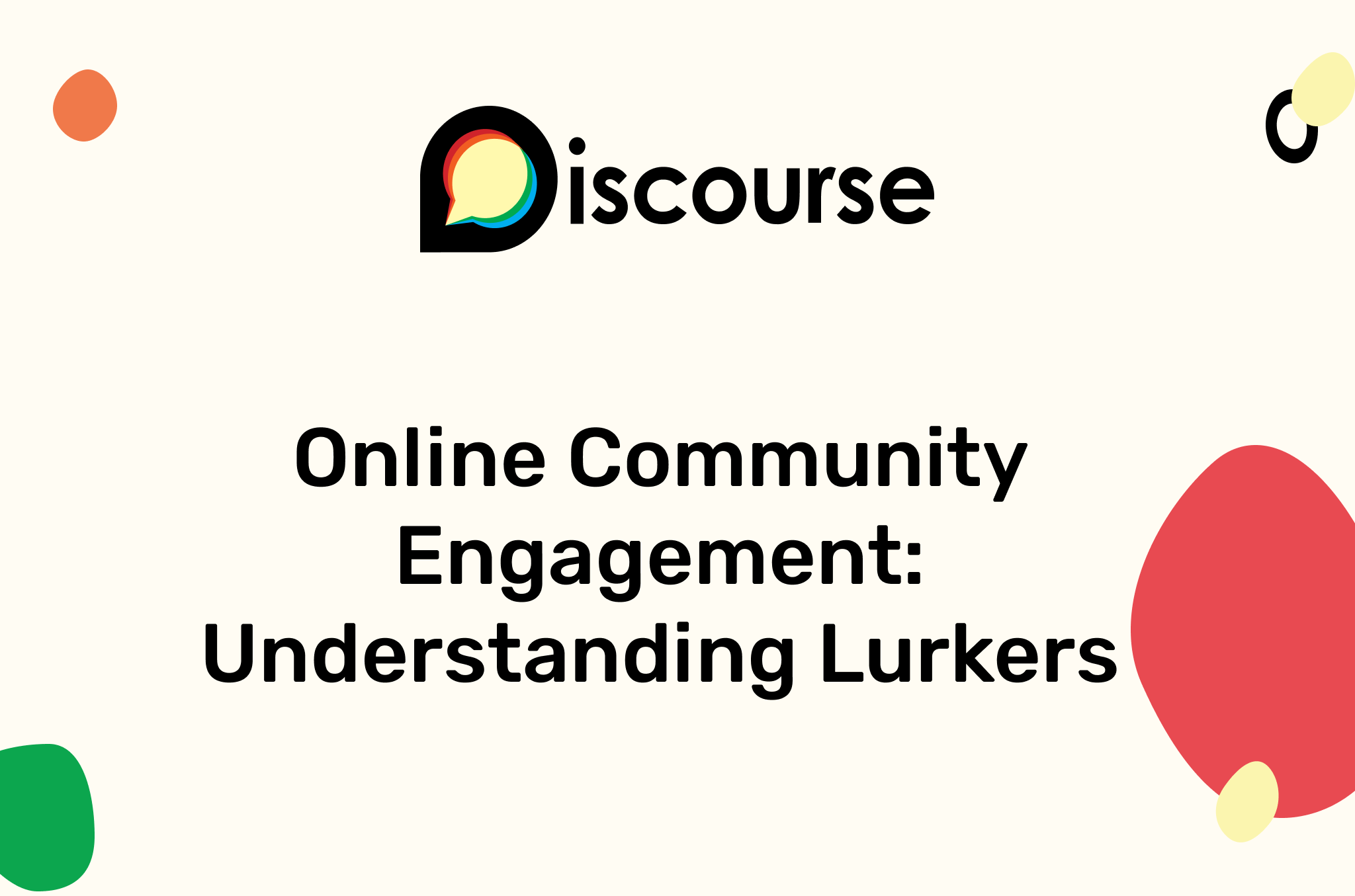Online Community Engagement: Understanding Lurkers

In a time where connection and belonging have never been more essential, online communities have the potential to offer members the remarkable gift of being seen and heard. These virtual spaces, with their vast reach and diverse participants, offer a platform where individuals can share, learn, and engage like never before. However, every community manager will run into the phenomenon of community members showing up but not engaging in the community. Let's explore some of the dynamics that could be at play.
Understanding your community members
In the majority of online communities, your members can be categorized into three distinct groups. First, there are the actively engaged members who enthusiastically participate by posting and responding to discussions. The second group consists of members who participate to a lesser extent. These users could be posting their own topics, replying to others or liking posts, less than actively engaged members. Finally, there are the 'Lurkers', users who may not actively contribute but still observe the community interactions.
In the context of the Discourse community definition, your 'Lurker' is essentially a 'Reader'—someone who might search for information, arrives in your community, and peruses the available content without commenting or engaging further.
The truth about engagement numbers
Organizations and community leaders have always endeavored to understand what to expect in terms of engagement from their community. As far back as 2006, Jacob Neilson wrote about participation inequality claiming that only roughly 1% of a social media community are likely to be active contributors, while 90% of a social media community is likely to be made up of people who fall into the category of Lurker. They visit, they read, and they don’t post. The remaining 9% are people who participate but very little.
Since then, The Community Roundtable has likened the 90-9-1 rule to a myth. They suggest that the real numbers for an online community are 55-25-20. Their 2022 State of Community Report details their conclusion that “a well-managed online community sees the following in a given month:
- 20% of members are actively creating content
- 25% are validating and consuming content
- 55% are inactive
How do members benefit?
If you find that more than 60% of your community members are inactive the next step is understanding why people are participating in your community.
Asking yourself what benefits are the people in your online community receiving can lead to engagement insights. According to a survey by Hubspot the top 3 benefits from the people they surveyed were:
- Learn new things
- Ideas and Inspiration
- Meet/interact with others with similar interests
Turning Lurkers into Active Contributors
While reading the previously mentioned Jacob Neilson article on participation inequality, I had a moment to chuckle when reading the heading: How to Overcome Participation Inequality and the blunt subheading You can’t.
It seems like a shocking truth but it is not entirely true. It is very likely that if you can identify what the user is looking to get out of your community or forum then you can find a strategy to get them to engage with your community. But be realistic, if you have members who are in your community looking to learn and they are successfully able to do so without asking any questions then that should be seen as a win!
For practical advice, check out the post by one of our Customer Success Managers, Bas van Leeuwen’s Community Guide: Activating Lurkers as he offers excellent strategies on how to engage your online community members.
In Conclusion
By recognizing the benefits that community members seek, such as learning, inspiration, and connections, you can shape engagement strategies that appeal to readers and encourage their active participation.
As community leaders, let's create opportunities that foster meaningful connections, and celebrate user contributions. Remember, each small step toward engagement can lead to a more vibrant and thriving community.
